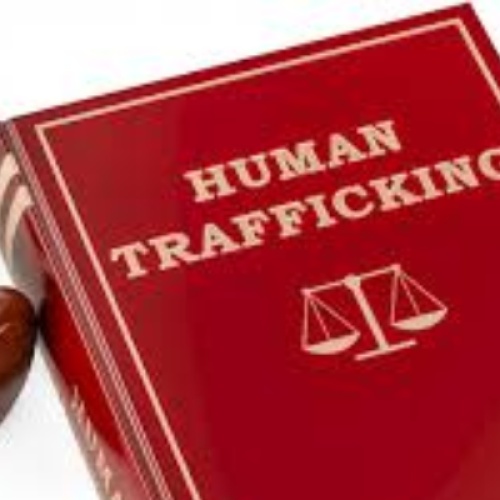The afterlife of human trafficking is not just the journey of the individual survivor - it's a collective responsibility. If the trauma was created by systems, silence, and exploitation, then healing must be supported by justice, visibility, and care. This chapter explores how communities - schools, workplaces, churches, families, and public systems - can become spaces of restoration instead of re-traumatization.
1. Listening Without Fixing:
The most powerful thing a community can do is listen without judgment.
Too often, people want to "fix" survivors: offer solutions, tell them to move on, or say things like "Everything happens for a reason." But survivors don't need quick answers - they need safe space.
Listen to their story if they choose to share. Validate their feelings. Don't pry for details. Let them lead the pace of disclosure. Trauma-informed listening means replacing questions like "Why didn't you just leave?" with "How can I support you now?"
2. Trauma-Informed Systems:
Healthcare.
Law enforcement.
Social services.
Education.
These systems are often the first point of contact for survivors post-trafficking - but without proper training, they can easily retraumatize.
Trauma-informed systems:
Believe survivors when they speak.
Use nonjudgmental language and avoid labels.
Offer choices rather than commands.
Recognize triggers like loud voices, invasive procedures, or closed spaces.
Avoid asking for unnecessary retellings of traumatic events.
Organizations must invest in training - not just for therapists or social workers, but for everyone on staff. A receptionist with the wrong tone can undo a survivor's trust. A teacher without context can discipline a traumatized student rather than support them.
3. Economic Empowerment
Healing isn't just emotional - it's practical.
Survivors often face:
-Gaps in employment history.
-Criminal records from coerced actions.
-Limited access to housing, education, or financial literacy.
-Communities can help by:
-Creating job training and hiring pipelines for survivors.
-Supporting trauma-informed entrepreneurship.
-Offering microgrants or scholarships without invasive screening.
-Expunging nonviolent records related to trafficking.
When survivors have the means to support themselves, their healing accelerates. Dignity follows stability.
4. Faith and Cultural Sensitivity:
Faith communities can be powerful sources of comfort - or harm - depending on how they respond. Survivors from religious backgrounds may wrestle with guilt, shame, or broken trust.
Cultural competence matters too. Survivors from immigrant communities, LGBTQ+ identities, or Indigenous groups may face layered forms of stigma, language barriers, or historical trauma.
The solution is humility: listen to the survivor's lived experience and center their values, not yours.
5. Survivor-Led Advocacy:
One of the strongest ways to support survivors is to follow their leadership.
-Hire survivors as advisors,
-educators
-consultants.
-Fund survivor-led organizations.
-Let them shape the policies and programs designed to help others. They know what works - and what doesn't - better than anyone else.
-Avoid tokenism.
-Support their work without putting them on display. Survivorship is not a brand - it's a life experience.
6. Everyday Allyship:
(You don't have to be a policymaker or nonprofit leader to make a difference. Everyday)
allyship includes:
-Speaking out against victim-blaming language.
-Donating to anti-trafficking orgs with transparent survivor involvement.
-Volunteering your time or skills (legal aid, mentoring, education).
-Being a safe and consistent presence in a survivor's life - no questions asked.
-Sometimes the most radical act is staying. Being steady. Showing up again.
"I didn't need people to save me. I needed people who wouldn't leave once I was free."
- Survivor Advocate, Age 36
Closing Reflection:
Survivors are already doing the hardest part - rebuilding themselves.
The question is: will we build the world around them to be kinder, safer, and more just?
Healing happens in community. The afterlife of trafficking doesn't belong to survivors alone. It belongs to all of us.






